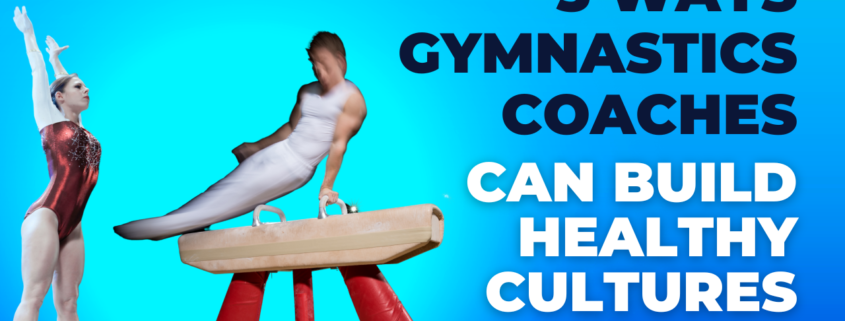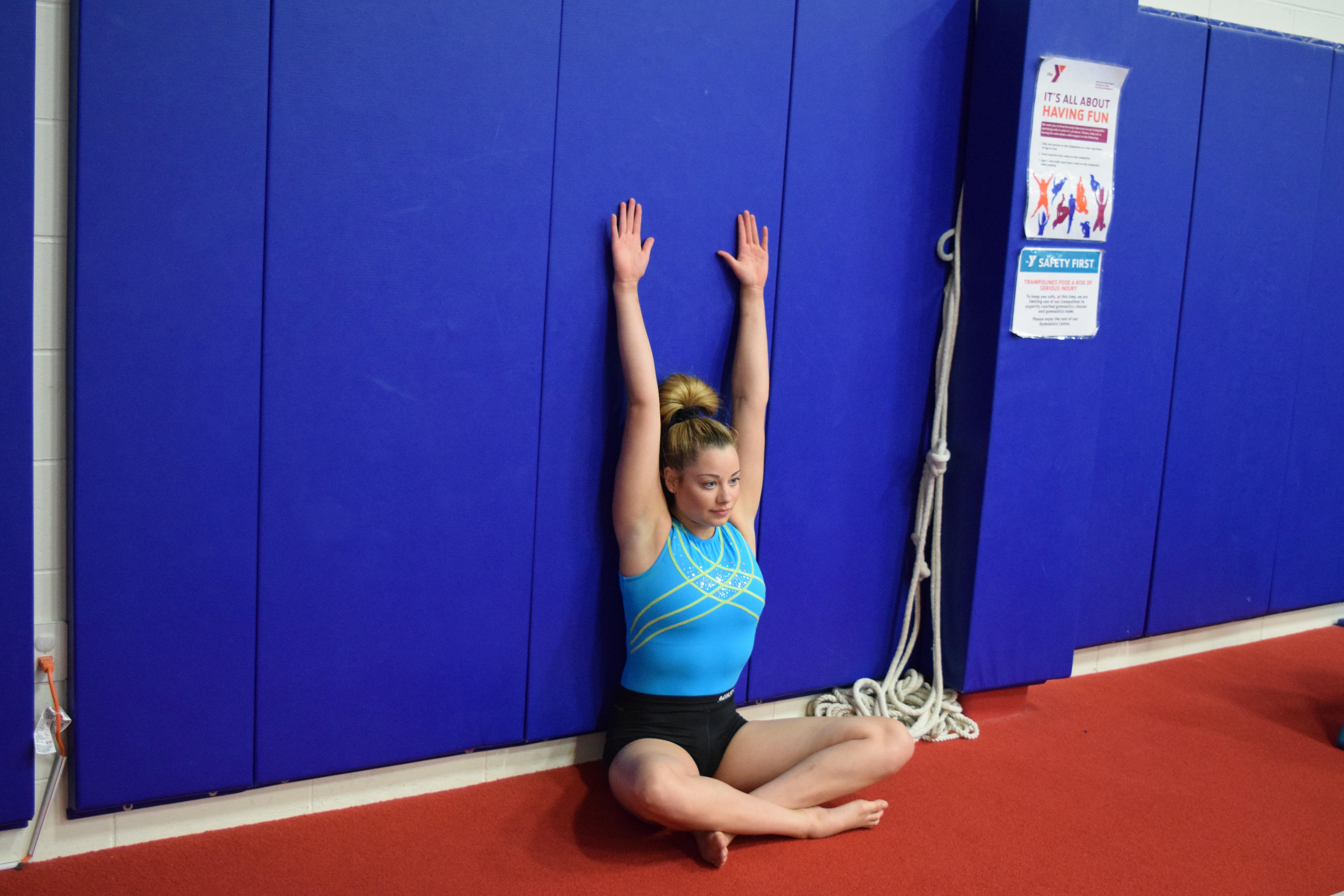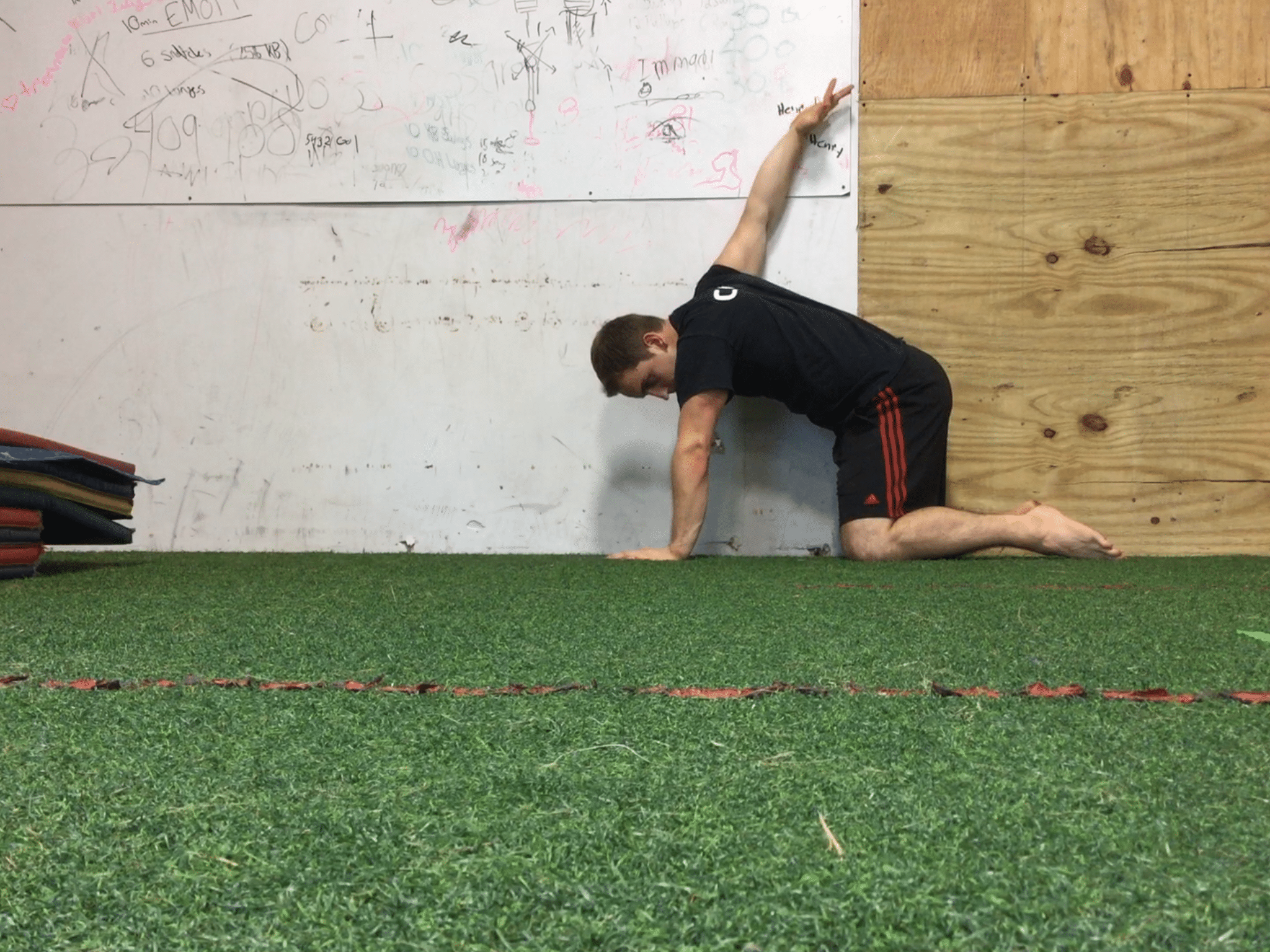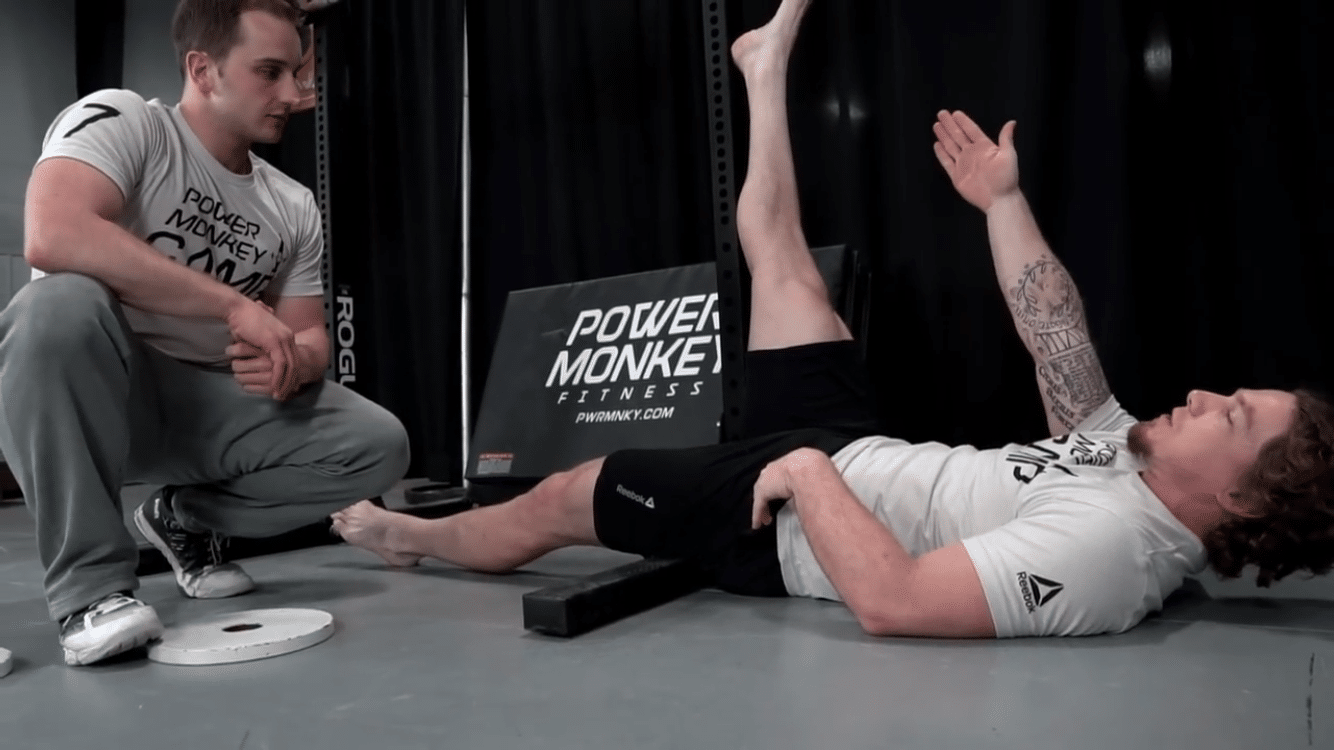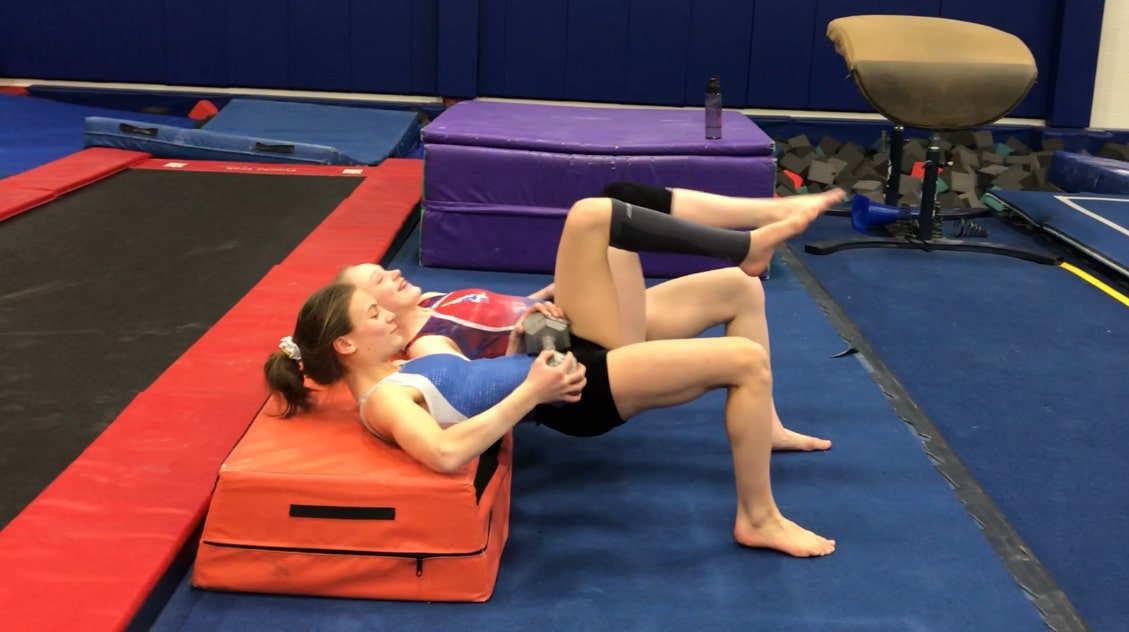5 Ways Gymnastics Coaches Build Healthy & High Performing Gym Cultures
There has been a massive change in the cultural aspects of many gymnastics gyms in the last 5 years. We are seeing a huge move away from the ‘old school’ style that is more dictatorship and authoritarian, into one that is more democratic and based on radical open communication between coaching and gymnasts.
This week on the podcast, Luke Carson outlined this in perfect detail. He shares how this democratic and communication-based approach is a large reason why how he has been able to help gymnasts like Rhys McClenaghan reach the Olympic level of competition, and more recently claimed a gold medal at the World Championships.
Building off that discussion with Luke, I wanted to share 5 things that I have noticed in gyms that have incredible cultures. By that I mean the kids are happy, healthy, and accomplish incredible high-level goals they have.
Some gyms with these tendencies have kids who simply want to have fun in gymnastics and leave the sport happy in high school while running a successful business. Others have girls who consistently make the National Team, compete internationally, or get full scholarships for NCAA gymnastics.
Before we dive in, remember that if you are a person working in gymnastics we are going to have an absolutely stacked lineup of discussions on culture, skill development, mental blocks/anxiety, strength and conditioning, injuries, and more at the 2023 SHIFT Symposium

We have tickets currently on sale and you want to jump on them quickly!
Now, let’s dig into this week’s topic.
Table of Contents
5. Communication
First, very open and honest communication is an essential cornerstone of healthy cultures in gymnastics gyms. Gyms that have coaches, parents, gymnasts, and medical providers who constantly communicate with each other build trust, rapport, and a sense of connectedness that is essential for a positive and successful environment.
When coaches, parents, gymnasts, and medical providers communicate openly and honestly with each other, they are able to establish trust and build a sense of truly feeling they are heard. This trust is essential for creating a positive environment in which gymnasts can thrive, and parents feel as though their child’s health is the single priority at all times.
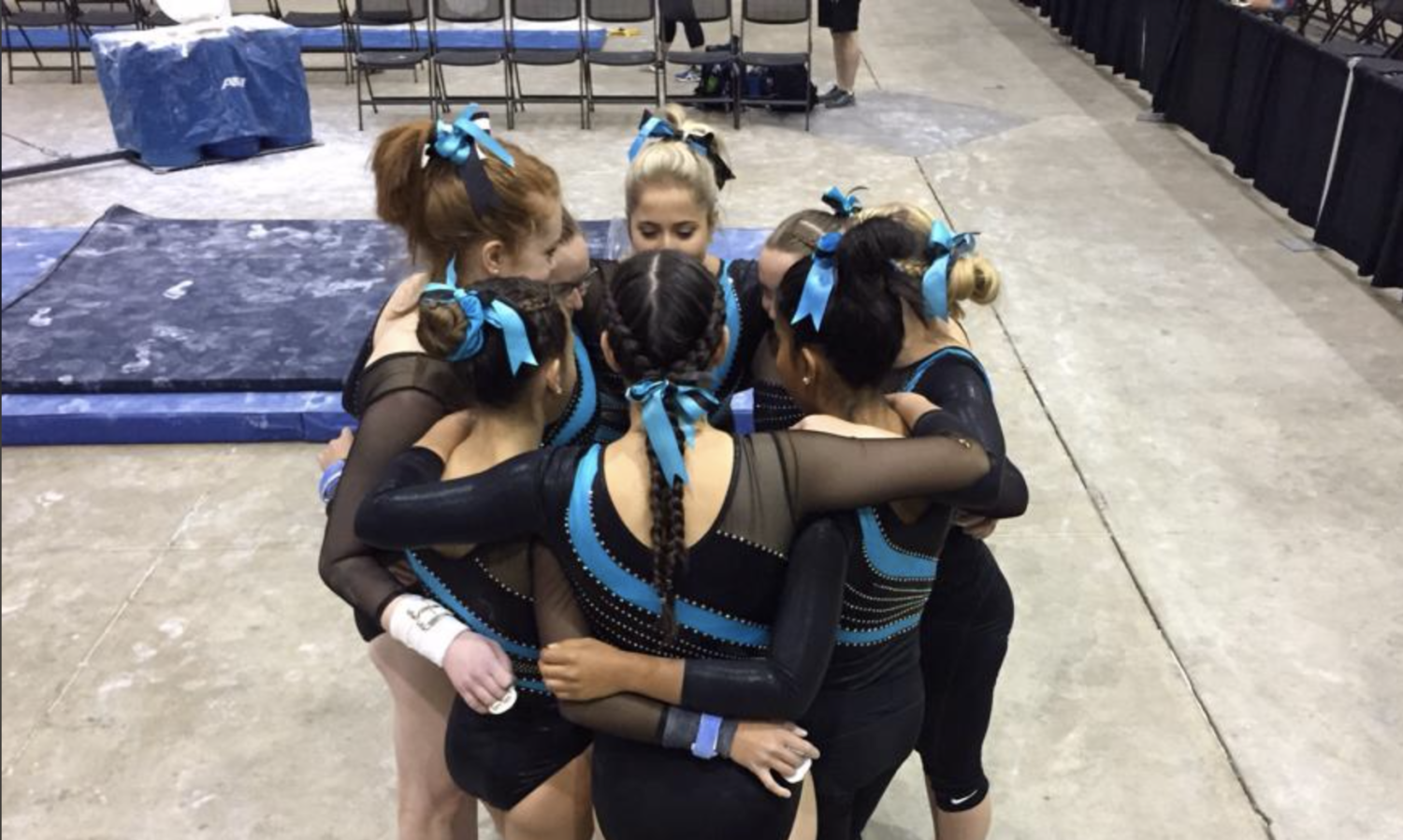
It is clear from looking at these gyms that when gymnasts trust their coaches, they are more likely to work hard, push themselves, and dig into the grind that gymnastics requires. Likewise, when coaches trust their gymnasts, they know that they are getting honest feedback on their questions and input.
Another important aspect of open and honest communication is the concept of psychological safety. Psychological safety refers to an environment where people feel they can speak up about things without fear of judgment. A culture of psychological safety is essential for gymnasts to be able to speak up about any concerns they may have, whether it’s about their training, their health, injuries, or their overall well-being.
When gymnasts feel safe to speak up, they are more likely to be honest and open about what they are experiencing. This, in turn, allows coaches, parents, and medical providers to better support and help them. They are also much more likely to speak up early about issues like injuries or fear so that the problem can be addressed early head-on before it spirals.
Lastly, remember that nonverbal communication is just as, if not more, important than verbal communication to have a truly incredible culture of high performance. Nonverbal cues such as body language, facial expressions, and tone of voice can convey a lot of information and can be just as powerful as verbal communication.
The fastest way to break trust is by giving off the vibe that you dont care via your nonverbal body language. Or wose, that you are ignoring someone, either by not looking them in the eyes or skimming your phone as they talk to you. Focus on high-quality verbal and nonverbal communication, and you will see some serious improvements in day-to-day training moods as well as productivity.
4. Constant Education
Next, continuing education and constantly having a learner’s mindset are other elements I see in many of the best and most performing gymnastics cultures. The sport of gymnastics is constantly evolving. Coaches must take it upon themselves to stay current with the latest drills, communication methods, mental health, science on strength and conditioning, and new approaches to training.
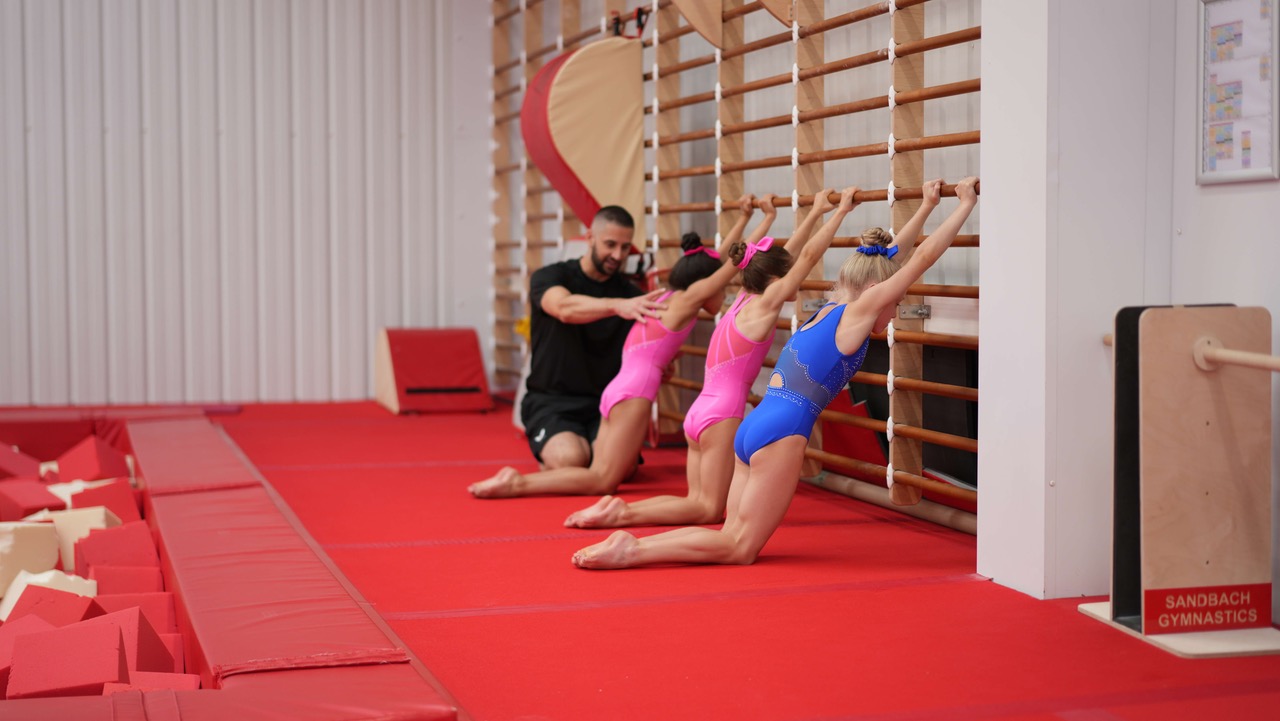
As the sport of gymnastics and training changes, so do the techniques used to perform skills and coaching techniques. Coaches who fail to stay current with the latest information may find that their gymnasts are not quite coming along. Or, they may find that they only know one way to teach a skill and that it doesn’t help all their athletes. By staying current with the latest techniques, and knowing different methodologies, coaches can be at the forefront of new ideas.
Strength and conditioning is a great example of this. There has been a substantial change in the last 5 years alone in how many people are approaching this. What used to be only body weight and a fear of weight training, is now moving to a clear hybrid model of both body weight and external loading through dumbells, kettlebells, and barbells.
As research in the field of sports science continues to advance, coaches must stay current with the latest information on gymnastics strength and conditioning to ensure that their athletes are not only maximizing their performance progress but also staying as safe as possible. This includes understanding the principles of periodization, the latest research on injury prevention, and the most current information on recovery and regeneration.
3. Humility
Importantly, this all hinges on the idea of humility. More so, the acceptance that even though someone may have lots of experience they don’t know everything. There are so many facets to gymnastics from skill technique to mental health, to nutrition, to injuries, and more. The best coaches are always willing to learn and always open to new ideas, as well as work with experts in other domains they do not have the skill for. They understand that there is always room for improvement and that there is always something new to learn.
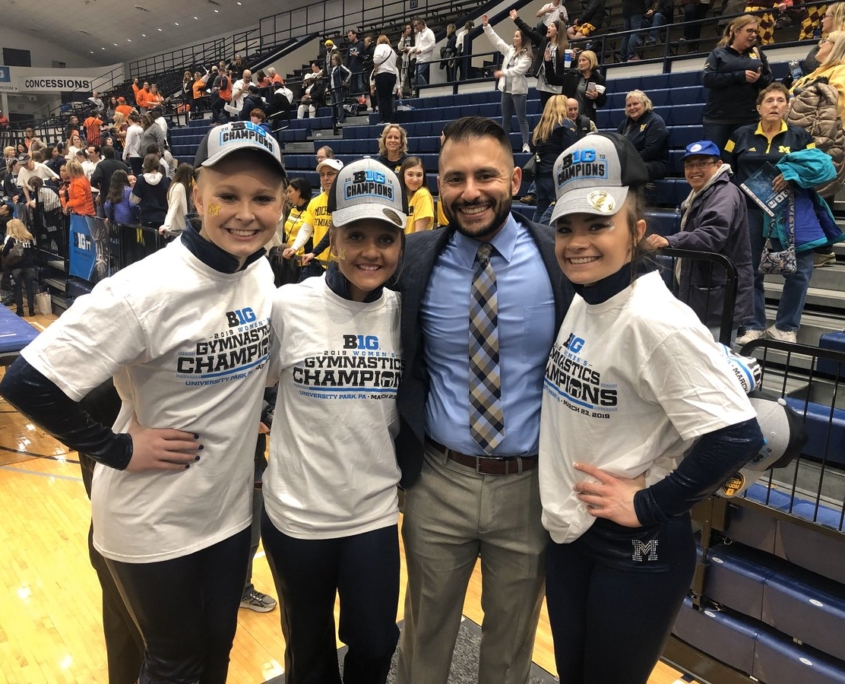
The appearance of humility is one thing. Actually acting humbly each day through your choices is another. I used to be guilty of this. Saying that I wanted to hear other people’s opinions for the show, but really continue forward with my ideas. True humility is the balance of confidence in what you do know, and are good at, balanced with accepting the reality that you must always learn, discuss with others, and entertain a variety of inputs/ideas. Most importantly, entertaining those inputs even when they are very different than yours. That is true humility, and it is essential for coaches that want high-performing, healthy gym cultures.
2. Accountability
Second to last is accountability. This is one of the most crucial characteristics a gymnastics coach must have. It is the ability to take responsibility for one’s actions, to admit when they made a mistake or were wrong and to be willing to make amends for it. This establishes trust and rapport with athletes and is essential for creating a positive and successful training environment.
When coaches, parents, and all staff are accountable, athletes trust that they are making decisions based on their best interests. When coaches take responsibility for their actions, they demonstrate they are willing to set aside their own views to do what is needed for everyone’s success. This trust and rapport are essential to get through the long, challenging, journey gymnastics may bring year to year.
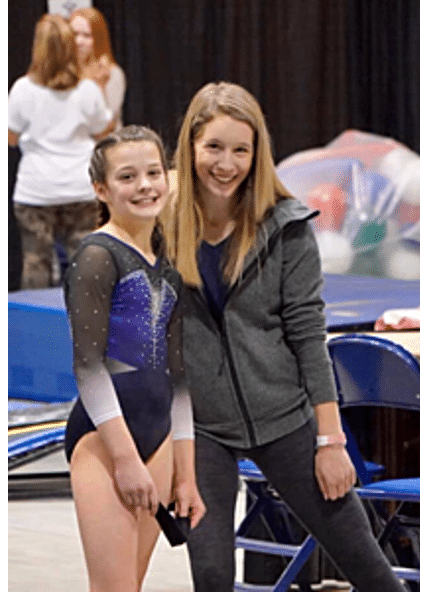
Accountability is also crucial when it comes to taking care of one’s own personal life outside the gym. This includes getting enough sleep, eating well, exercising, and caring for one’s mental health. For one, when coaches are accountable for their own well-being, they are better able to take care of their athletes. When coaches are not taking care of themselves, it can negatively impact the quality of the gym culture and the coaching of the athletes. This leads to my last point.
1. Leading by Example
No matter how you slice it, there is no single bigger influencer of positive culture than the choices people make. In my mind, leading by example is by far the most powerful tool a gymnastics coach has to influence positive culture in their gym and build a genuine connection with the gymnasts they coach as well as their co-workers. A coach’s actions and choices, such as showing up early, having a well-thought-out training plan, investing time into learning, and being disciplined to take care of their own health, ultimately move the needle the most when it comes to influencing other people.

When a coach leads by example, doing what they said they would, they set the standard for the culture of the gym. For example, if a coach is always on time and well-prepared for practice, it sends a message to the gymnasts that punctuality and preparation are important. If a coach takes care of their own health and well-being, making sure to exercise daily, sleep 8 hours, and eat well, it sends a message to the gymnasts that self-care is important for performance and mental health. Not only do the behaviors often spread via positive social contagion, it also often will create a positive culture in the gym that is built on mutual respect, trust, and a shared sense of purpose.
While words are important, and what you say does matter, at the end of the day, your choices and what you do every day are the biggest reflection of your morals, values, and character. A coach who says one thing but does another will not be able to establish trust and rapport with their gymnasts. When a coaches’ actions align with their words, they clearly show they are willing to back up what they believe.
Conclusion
The reality is that creating a positive, uplifting, and high performing gym culture is HARD. Not only does it take a lot of work on the front end, it is something that must constantly be worked on day in and day out. But, it’s worth it.
To have a place where coaches and staff love coming to work, kids love workout out at, and parents are excited ot bring their kids to, is priceless. These qualities above are just some of the big rocks to help get things moving in the right direction.
Before we end, remember that if you work in gymnastics in any way and want access to the worlds leading experts for skills, drills, conditioning, and injuries be sure to check out the 2023 SHIFT Symposium. We have 3 jam packed days coming in June with 30 speakers, and 30 lectures. Don’t miss out!

I hope this has been a helpful read, and thanks for checking it out.
– Dave
CEO/Founder of SHIFT
Sports Physical Therapist

